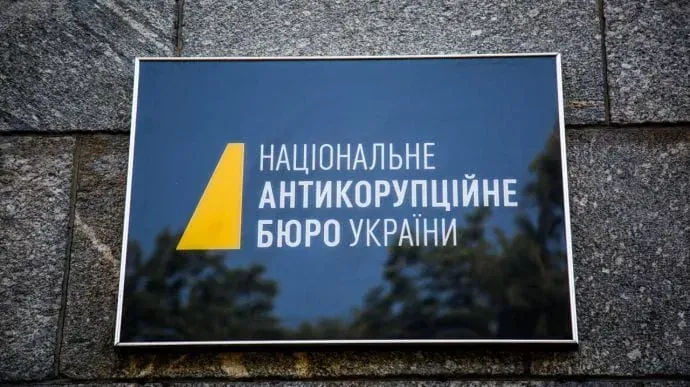Where is my land: how the national wealth of Ukraine became a hostage to the corruption of the agrarian academy
Kyiv • UNN
Ukraine's National Agrarian Academy of Sciences (NAAS), which controls a large land bank inherited from Soviet collective farms, is mired in corruption scandals involving the misuse of land resources, non-transparent leases, and mismanagement of state property.

According to the Constitution of Ukraine, land is a national treasure that is subject to free privatization by citizens of the country. However, the current situation is such that ordinary citizens have to compete with corporations, and soon, probably, with foreigners, for their land. At the same time, the largest land bank in Ukraine is in the hands of the National Agrarian Academy of Sciences (NAAS), which is mired in corruption scandals and has been repeatedly caught in the hidden transfer of land to businessmen, UNN reports.
By law, all citizens of Ukraine have the right to privatize land for farming, personal farming, gardening, individual summer cottage construction and garage construction.
However, not all citizens have realized their right, and the land market is already open to many participants. The National Agrarian Academy, which inherited land from Soviet collective and state farms, was and still is the holder of one of the largest land banks. However, absolute power over the country's national wealth and a plethora of loopholes have so clouded the minds of officials that some of this land remains unregistered in accordance with Ukrainian law. That is, in fact, in the gray zone.
If we unify all the scandals related to the National Academy of Sciences, we will have the following:
- Corruption scandals: The National Academy of Sciences is periodically accused of corruption, in particular in the non-transparent use of land resources and budget funds. For example, there were cases when it was accused of selling land intended for scientific research at low prices, which caused losses to the state.
- Misuse of land: In some cases, the academy has been accused of misusing land, including leasing land for commercial projects without proper control and transparency. UNN recently wrote about one such case.
- Mismanagement of property: There have also been allegations of mismanagement of state property under the jurisdiction of the NAAS. This includes inappropriate use of funds allocated for research and infrastructure.

These scandals emphasize the importance of reforming and strengthening control over the NAAS to ensure transparency and efficiency in the use of public resources. However, the situation is so out of control that instead of fairly distributing land among Ukrainian citizens, the state policy represented by the NABU, for example, is trying to "drive" these lands back into corrupt land banks, either of the NAAS or the State Property Fund, which theoretically should transparently privatize the same lands. That is, to take away from some and give to others.
This is evidenced, in particular, by the NABU case against the former Minister of Agrarian Policy Mykola Solsky. Without going into the details of the case, it was essentially a situation where land plots were transferred for privatization to ATO participants. Solsky was involved as a lawyer on the side of the soldiers, long before he got to the Verkhovna Rada and then to the Ministry of Agrarian Policy. But, as it turned out, these lands were also claimed by state-owned enterprises of the National Academy of Sciences, represented by Nadiya and Iskra. They could not prove that the disputed land was theirs because the land was not registered. And the Supreme Court ruled that the NAAS considered these lands to be its own illegally.
Why were the bids for this land so high that the NABU intervened not on the side of the ATO defenders, but on the side of the corrupt NAAS? It turned out that the state-owned Nadiya was renting it out in a hidden lease. Private companies were growing their crops on land that essentially belongs to all Ukrainian citizens and should be used for research and scientific breakthroughs. We are talking about more than 1,500 hectares of land - and this is only the land of one state-owned enterprise, and there were more than a hundred of them in the National Academy of Sciences. On the market, a bribe for the use of such an array of NAAS land could reach 200+ thousand dollars, as evidenced by another NABU case .
However, can we assume that NABU is interested in corruption at the National Academy of Sciences? Obviously not. However, it is quite possible that NABU is "protecting" expensive Ukrainian land for other owners, and not necessarily Ukrainian ones. After all, they themselves are funded by international partners, and there are certainly those who want to appropriate Ukraine's fertile soils.

"Reform cannot be eliminated" or what to do with the National Academy of Sciences to establish social justice. Several main areas that can be considered for reform:
1. Improving transparency and accountability:
- Implementation of electronic systems to track the use of budget funds and land resources.
- Publication of detailed reports on the activities of the Academy and its institutes, including financial and research reports.
2. Anti-corruption measures:
- Establishment of an independent commission to investigate corruption cases within the National Academy of Sciences.
- Implementation of strict anti-corruption regulations and regular inspections for compliance with the law.
3. Optimization of resource management:
- Conduct an audit of land resources and property of the National Academy of Sciences to determine their condition and optimal use.
- Ensure transparent procedures for leasing land and other assets, with open tenders required.
4. Modernization of research and development activities:
- Attracting young scientists and researchers to work at the NAAS through grants and scholarships.
- Supporting innovative projects and developing cooperation with international scientific institutions.
5. Reform of the personnel policy:
- Holding open competitions to fill positions in the academy in order to attract qualified specialists.
- Implementation of a system for evaluating the performance of employees and stimulating their professional activities.
- Audit of the efficiency of the academy's staff, which numbered almost 30 thousand employees.
6. Involvement of the public and partners:
- Intensify cooperation with agricultural associations, farmers and other stakeholders.
- Holding regular consultations with the public to take their opinions into account in decision-making.
7. Improving management efficiency:
- Implementation of modern methods of project and research management.
- Ensuring professional development of management personnel through training and education.
And finally, if there were more "Robin Hood criminals" like Solsky in the country, perhaps by now all ATO participants and current defenders of the country would have received the land promised to them from the state. Even a memorandum between the StateGeoCadastre and the Veterans Council under the Ministry of Veterans did not help implement the state program. And as practice shows, soldiers have little chance of doing this on their own and without legal support. Moreover, most of them are currently engaged at the front.

Those who managed to get them successfully lease their land plots to agricultural companies and receive money for them. In particular, this is evidenced by the ATO soldiers who managed to get them thanks to Solsky. And by the way, the ATO soldiers themselves deny the NABU's accusations against the former minister that he allegedly forced them to formalize their land and transfer it to a particular agricultural company. So whether the fact that ATO soldiers received land and leased it to agricultural companies constitutes a crime - even if we assume that the lease was agreed upon in advance - is a question that only the court can answer definitively. But it is already clear that the NABU is walking on a thin ice.
"I submitted all the documents and received a land plot as a combatant. I have all the documents. I leased the land of my own free will. I receive the rent regularly and on time. Even the indexation is going on - this year the rent has been raised a lot," the defenders say.
But such testimony obviously does not suit the NABU and SAPO detectives, who have already exhausted all reasonable time limits for the investigation of this case and have planned to interrogate another 1500 people, including the ATO soldiers themselves.